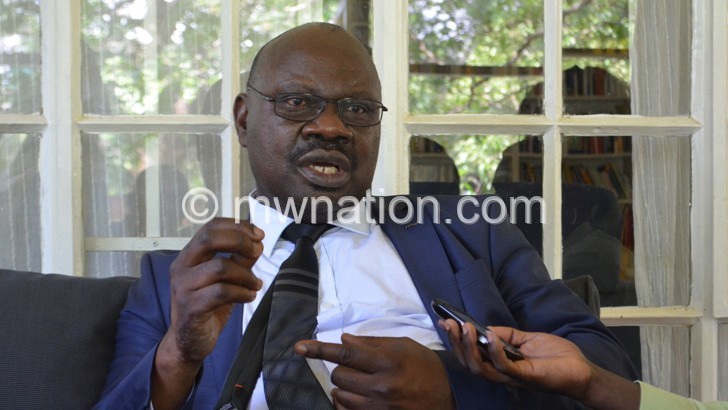India, Malawi discuss uranium deal
Malawi and India are engaged in negotiations for a possible uranium deal which could see India importing the yellow cake from Kayelekera Uranium Mine in Karonga.
Secretary to the Treasury Ben Botolo and Indian High Commissioner Suresh Kumar Menon said in separate interviews yesterday that the two countries were discussing the possible deal.

A breakthrough in the talks would give a new lease of life into a venture whose operations were suspended in 2015 due to a slump in global prices for uranium.
The talks also come at a time the 15-year contract between Malawi Government and current majority shareholder in the mine, Australian-listed Paladin Energy Limited, is nearing the end.
In an interview, Botolo said he was aware of the negotiations between the two sides, but requested for more time to respond to questions on the matter.
But Menon exclusively told The Nation that while there was no investment proposal or mine development plan from the Indian Government, New Delhi has requested Lilongwe to provide a technical report on the matter.
He said: “Uranium is one of the mineral resources among the various other mineral resources Malawi has and from media reports, the High Commission is aware, one of the uranium mines, a private mine where the Government of Malawi is a minor shareholder, is under care and maintenance.
“The Indian delegation did try to ascertain details of this mine viz, scientific data, chemical composition of the ore, reports of the exploration, quantity and quality of the resources and lifespan of the mine etc. Once such information is shared, the next stage of discussion would take place.”
Situated in Karonga District, Kayelekera Uranium Mine remains the biggest mining project in Malawi’s history and is operated by Paladin Africa Limited, a subsidiary of Paladin Energy Limited.
Kayelekera began production in 2009 and in 2013, revenue from the mine alone contributed 2.6 percent of gross domestic product (GDP).
After the closure of the mine, mining sector GDP dropped from around 8 percent in 2009 to one percent bin 2016.
To date, Malawi’s total revenue from the operation since the opening stands at $12 million.
In the interview, Menon confirmed that the ongoing discussions are a follow up to a memorandum of understanding (MoU) on cooperation in mineral operations signed in November 2010 and subsequent joint mineral cooperation meeting held in Lilongwe last August.
He said Lilongwe and India then discussed several cooperation issues with its Malawian counterparts including on assisting Malawi strengthen capacity in mapping and exploration of minerals and explore commercial utilisation of the resources.
Apart from civilian programmes such electricity generation, enriched uranium is used for military programmes. n





